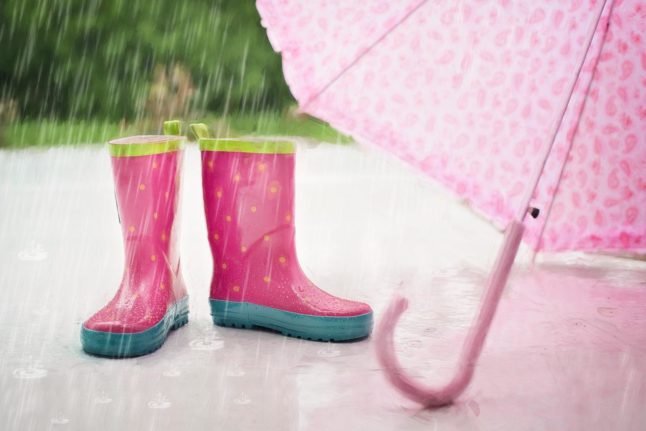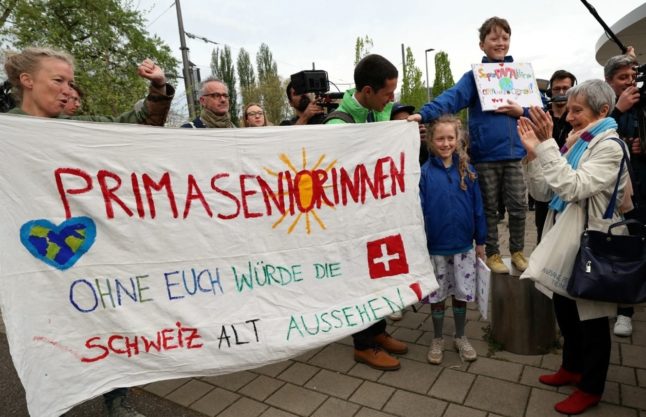While some areas of Switzerland have been hit by thunderstorms in the past days, providing some relief for agriculture and nature in general, the amount of rain has not been sufficient to counteract the effects of drought that has impacted much of the country.
The water levels of Lakes Constance, Walen, Lucerne and Lugano have reached historic lows, according to the Federal Office for the Environment (FOEN).
Continued drought has also impacted some rivers, including the Rhine, whose levels are “strongly to moderately” below average for the season, FOEN said.
The good news is that “the alarming situation on the drought front will finally ease somewhat in the coming days thanks to the return of the rains», according to Vincent Devantay, meteorologist at MeteoNews weather service.
Heute lacht die Sonne vom Himmel, allerdings haben wir das nur einem Zwischenhoch zu verdanken! In nächster Zeit nimmt der #Tiefdruckeinfluss überhand, Schauer und Gewitter stehen am Programm. Bis Samstagabend kommt regional einiges an #Regen zusammen https://t.co/wo76zPZvXe (km) pic.twitter.com/70Hck6SSPH
— MeteoNews Schweiz (@MeteoNewsAG) August 16, 2022
The rains will begin on Wednesday afternoon, intensifying by the weekend, and “several areas of more or less active showers will finally follow one another until Saturday”, Devantay said.
By Saturday, these rainfall amounts are expected, according to MeteoNews:
- Plateau, Lake Geneva basin, Valais Alps: 20 to 50 litres per square-metre
- Jura Arc, Gruyère: 30 to 60 l/m2
- Central Valais: 15 to 30 l/m2
- Pre-Alps, Vaud Alps, Chablais: 40 to 80 l/m2
- North of Switzerland: 10 to 30 l/m2
- Central Switzerland, Ticino and Bernese Oberland: 50 to 100 l/m2
“These rains will bring some relief from the drought, but it would take several weeks of almost daily rain to see a real and lasting improvement”, Devantay said.
The rain will also bring in “much cooler temperatures”, but the summer weather will make a comeback from Sunday, “with increasingly warm temperatures and no clear deterioration is in sight for the future”.
READ MORE: Body stress, drought and borders: How the heatwave affects Switzerland



 Please whitelist us to continue reading.
Please whitelist us to continue reading.
So here is a new comment as I had not posted my last comment twice and btw neither did I ever give myself the name ‘Anglaise’ .